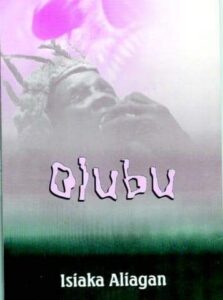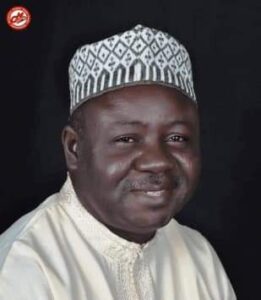
Aliagan’s play, like every famous tragedy play, treats the themes of fate, the supremacy of gods, and men’s contributions to the downfall of men. This play, while showcasing the communal need for piety and identity, also demonstrates how merciless the gods are in condemning an innocent man to pay for a crime he knows nothing about.
Princewill Press January 25, 2024
By Dauda Musbau
A review of Olubu – a play written by Dr. Isiaka Aliagan in 2010 will take a look at the general summary (synopsis) of the play, thematic and stylistic analysis, and appraising the incredible works of the Ilorin-born scholar.
SYNOPSIS
Olubu is a tragic play that tells the story of a young man called Olubu (an eponymous character) who was a byproduct of unwanted circumstances. This eponymous character is Obotun’s child who became a subject of mockery and jeer among his peers because of how the story of his birth unfolds. Not many people including his supposed father know the circumstances surrounding his birth.
Olubu’s mother, Obotun was betrothed to Tade. And as it was customary in Ariginya village, the groom’s family would surreptitiously kidnap the bride on a still pathway to the farm. Having this in mind, Obotun would always go out in the company of her friend who would go and tell her home that Tade’s family has done the needful.
On her usual routine, Obotun goes out alone. She came across a madman, Jaba who forcefully raped her. To conceal her shame, Obotun killed Jaba and was able to keep her secret till she got to her husband’s house.
Although the husband gets to know that his wife’s groove has been desecrated, he keeps the secret till his death but only confides in his brother, Tobi with an instruction that the shame must be kept a family secret.
Like every other person, Olubu too dared to love. He advanced towards Omokun and proposed his love to her while she was returning from the farm together with her friends. Omokun rejects him because of the circumstances surrounding his ancestry. The situation was so bad that even the drunk Jogo derided him.
Tobi, Olubu’s supposed uncle, who knew for certain that Olubu was not his brother’s son has died in mysterious circumstances after persecuting the bastard. His death forces an inquest by the village authorities and finally, the truth has to be told. Olubu was conceived amidst a series of crimes forced upon his mother by circumstances. The shame of the revelation results in a tragic ending.
THE THEMATIC ANALYSIS
Aliagan’s play, like every famous tragedy play, treats the themes of fate, the supremacy of gods, and men’s contributions to the downfall of men.
This play, while showcasing the communal need for piety and identity, also demonstrates how merciless the gods are in condemning an innocent man to pay for a crime he knows nothing about.
Both Olubu and his mother, Obutun, are victims of the gods’ cruelty. That her son was conceived out of wedlock was not her fault. But the gods nonetheless chose to curse her and the son as Olubu says in the play: “My fate, thus scripted by the gods and acted by men, has come to pass.”
THE STYLISTIC ANALYSIS
Diction: The play was written in plain and straightforward English making it enjoyable and readable for all ages. It was also blended with the Akure-Yoruba dialect.
Settings: The play was set in a remote village in Akungba, Ondo state, Southwest Nigeria.
Timeframe: This play is set in ancient days when gods reigned supreme.
SUCCEEDING THE TRAGIC PLAY BY SOPHOCLES AND OLA ROTIMI
Written in 2010, Olubu no doubt succeeded the great tragedy drama like Oedipus Rex by the Greek renowned tragedy playwright, Sophocles and Nigeria’s famous playwright, Ola Rótìmí’s Gods Are Not to Blame.
This is because Ilorin-born writer, Isiaka Aliagan’s treatment of serious themes like death, fate, and gods are dexterously woven which places him high on the list of great playwrights.
Photo credit: Next Journalism









